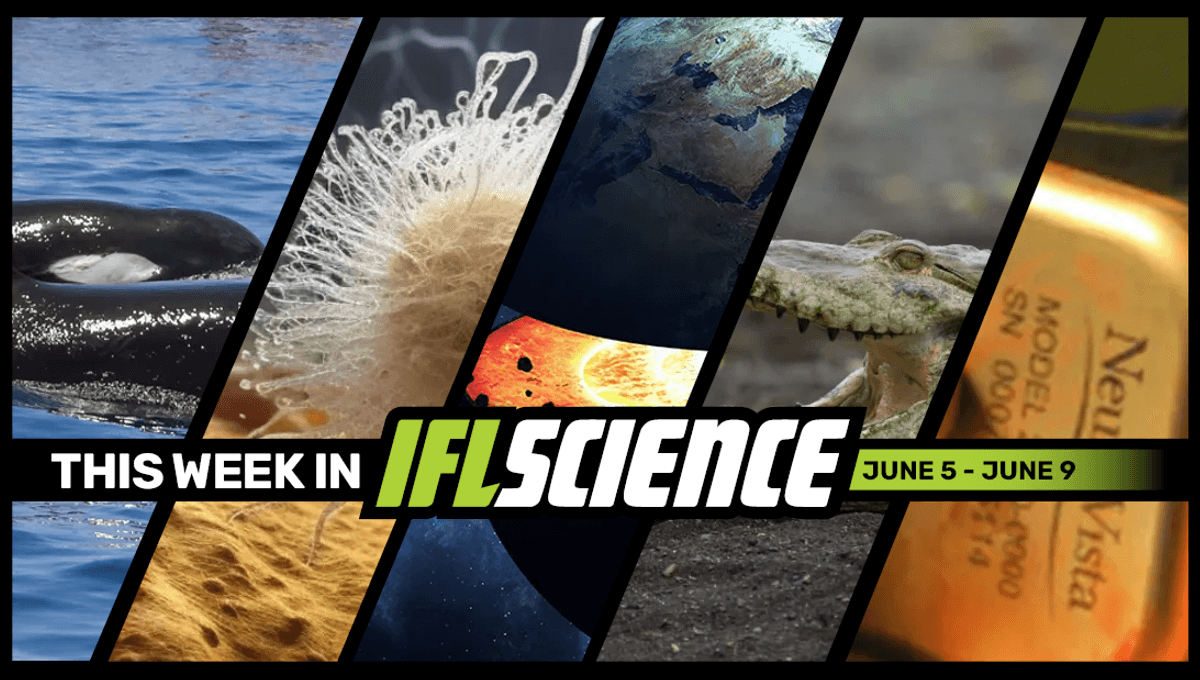
This week crocodiles have been documented for the first time reproducing via parthenogenesis, a patient whose life-improving brain implant had to be removed tells of her human-machine symbiosis, and we ask the question: do those with Rhesus-negative blood really descend from aliens?
Subscribe to the IFLScience newsletter for all the biggest science news delivered straight to your inbox every Wednesday and Saturday.
Orcas Attack Boat Using More Extreme Tactic For First Time
A pod of killer whales recently smashed the rudder of a sailing boat near Gibraltar before pursuing the vessel as it was tugged to port. The attack was one of 18 in the month of May off Spain’s southern coast, but is the first recorded instance of orcas following a boat after damaging it. Read the full story here
“Lost World” Of Early Ancestors Revealed In Billion-Year-Old Fossilized Fat Molecules
Fossilized fats that date back over a billion years have revealed a whole community of previously unknown organisms that were shaping Earth’s ecosystems during the planet’s middle age. They were abundant in marine ecosystems, and while we don’t know what they would’ve looked like, they were considerably more complex than bacteria – something they may have used to their advantage. Read the full story here
Scientists Found Two Gigantic Structures Deep Within The Earth. They Could Be The Remains Of An Ancient Planet
Lying beneath Africa and the Pacific in the lowermost part of the Earth’s mantle, surrounding the Earth’s core, there are two gigantic blobs that occupy around 3-9 percent of the volume of the Earth. Read the full story here
Crocodiles Seen Reproducing Via “Virgin Birth” For First Time – No Male Required
Documented cases of parthenogenesis, often referred to as “virgin birth”, have been on the rise in recent years, and now crocodiles have joined the roster of species known to do it. With birds already being known to reproduce this way, parthenogenesis now bookends a group of vertebrates known as the archosaurs, which researchers on the discovery say makes it “very likely” that dinosaurs and pterosaurs could do it too. Read the full story here
Doctors Forced To Remove Patient’s Brain Implant After The Maker Went Bust
An epileptic patient who was treated with an experimental brain implant has had to have the life-improving device removed after the company that manufactured it went bankrupt. The device was fitted in 2010 and removed a few years later. However, she still feels some sense of loss even now. Read the full story here
Feature of the week:
Having Rhesus-Negative Blood Does Not Mean You’re Descended From Aliens
Rhesus-negative blood is pretty rare and scientists are not sure exactly where it comes from. So, does this mean it was injected into our genetic heritage by visitors from outer space? No, no it does not. Read the full story here
Source Link: TWIS: Orcas Ramp Up Their Boat-Destroying Tactics, Billion-Year-Old Rocks Reveal Ancestral “Lost World”, And Much More This Week